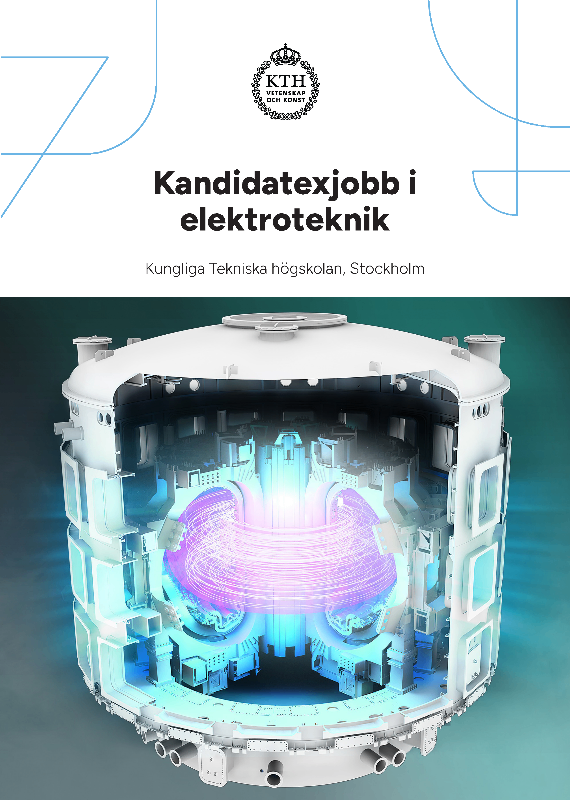- Individual supervised work involving solution of a technical or scientific problem, oral and written communication of the work, as well as evaluation and critical review of own and others' results
- Seminar series addressing set-up of a work plan, information retrieval and source evaluation, reference management, written and oral presentation, as well as written and oral review of others' reports.
- Group assignment with focus on putting the results of project in a larger context, including a summary, a written reflection over the ethical importance of the project for a sustainable society and a popular description.
EF112X Degree Project in Electrical Engineering, First Cycle 15.0 credits

Information per course offering
Information for Spring 2026 Start 13 Jan 2026 programme students
- Course location
KTH Campus
- Duration
- 13 Jan 2026 - 1 Jun 2026
- Periods
Spring 2026: P4 (7.5 hp), P3 (7.5 hp)
- Pace of study
50%
- Application code
60889
- Form of study
Normal Daytime
- Language of instruction
Swedish
- Course memo
- Number of places
Places are not limited
- Target group
- No information inserted
- Planned modular schedule
- [object Object]
- Schedule
Contact
Course syllabus as PDF
Please note: all information from the Course syllabus is available on this page in an accessible format.
Course syllabus EF112X (Spring 2021–)Content and learning outcomes
Course contents
Intended learning outcomes
On completion of the course, the student should be able to:
1. describe basic concepts in at least one application field of electrical engineering
2. identify where there is a need for additional knowledge; take responsibility for own development of knowledge; independently plan and carry out simple projects which require interaction with others to achieve an agreed-upon goal
3. Solve larger problems at first cycle level within one application field of electrical engineering, as well as independently analyse and discuss questíons and issues involved
4) show awareness of social and ethical aspects including economic, social and ecologically sustainable development
5) reflect on, evaluate and critically review own and others' technical and scientific results
6. document and present, orally as well as in writing, one's project work, using acceptable structure, formalities and language
Literature and preparations
Specific prerequisites
At least 104 higher education credits from courses in the programme syllabus up to period 1 in year 3 must be completed latest at the start of period 2, in order for the student to be allowed to start the degree project.
Literature
Examination and completion
Grading scale
Examination
- XUPP - Degree project, 15.0 credits, grading scale: P, F
Based on recommendation from KTH’s coordinator for disabilities, the examiner will decide how to adapt an examination for students with documented disability.
The examiner may apply another examination format when re-examining individual students.
If the course is discontinued, students may request to be examined during the following two academic years.
Other requirements for final grade
1. Attendance at seminars
2. Work plan
3. Passed session in reference management
4) Implementation of the project
5) Summary of context
6. Report - contents
7. Report - language & structure
8. Report - layout
9. Written and oral feedback
10. An oral presentation
Examiner
Ethical approach
- All members of a group are responsible for the group's work.
- In any assessment, every student shall honestly disclose any help received and sources used.
- In an oral assessment, every student shall be able to present and answer questions about the entire assignment and solution.